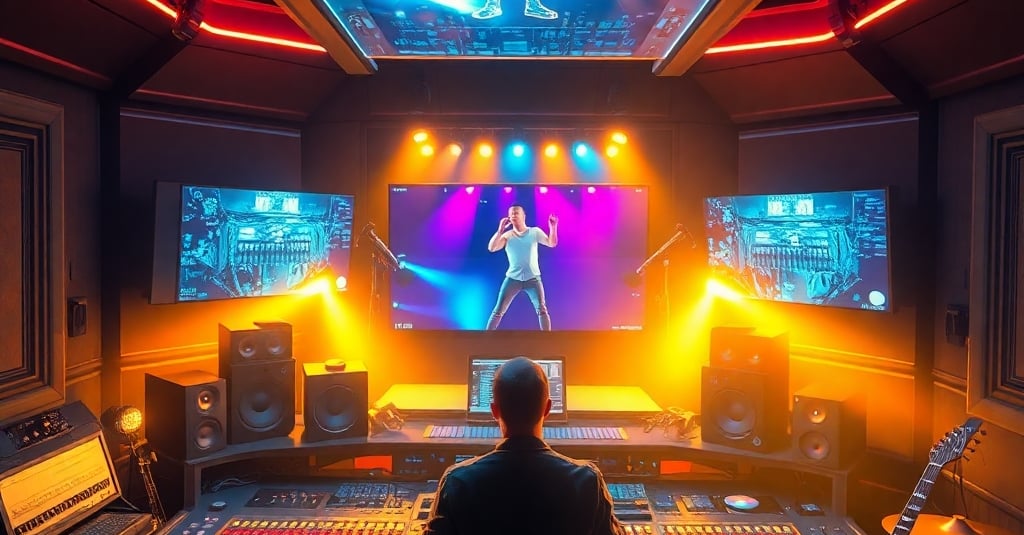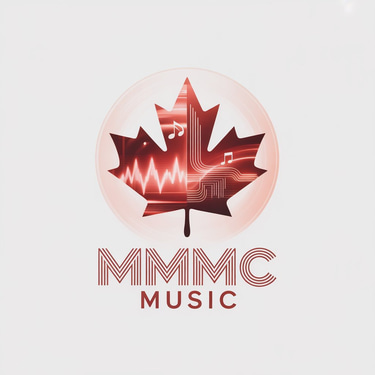How Technology is Shaping the Soundtracks of Our Lives
How AI is revolutionizing music through artist protection, virtual concerts, and personalized experiences while navigating challenges in authenticity and creativity.
Berythe Young
12/24/20243 min read


AI in Music: How Technology is Shaping the Soundtracks of Our Lives
The music industry has always embraced change, but 2024 marked a turning point with artificial intelligence at the center of innovation. From AI-generated holiday carols to Spotify Wrapped disappointments, technology hit both impressive milestones and some unexpected missteps. In this post, we’ll explore how industry giants like Amazon, Universal Music Group, Spotify, and Madonna are redefining music through AI.
Amazon Music and Universal Music Group (UMG) have joined forces to combat "unlawful AI-generated content." Their partnership focuses on protecting artists from unauthorized AI-generated imitations of their voices while fostering innovation in the music space. Steve Boom, Amazon's VP of Audio, Twitch, and Games, emphasized the importance of protecting artists' intellectual property while finding meaningful ways to deepen fan engagement. The partnership also highlights a larger trend across the music industry, where major platforms and labels are rallying to curb AI misuse while still harnessing its creative potential. AI tools are becoming more sophisticated, and companies are actively working on mechanisms to detect and manage synthetic content imitating real artists.
This year, holiday playlists on YouTube were filled with AI-generated carols that started innocently but soon spiraled into chaos. One playlist titled "Best of 1950s to 1970s Christmas Carols" garnered over 6.4 million views, despite featuring mismatched melodies and tracks attributed to non-existent artists like “Nei Diamond.” The playlist became a bizarre mix of familiar tunes and uncanny AI fabrications. A particularly surreal moment occurred when the lyrics of "O Little Town of Bethlehem" were sung to the melody of "Silent Night." Another track, attributed to Nat King Cole, turned out to be an AI-generated choral performance that had little to do with the iconic singer. These instances raised questions about how platforms like YouTube can improve their moderation of AI-generated content, especially as it continues to blur the lines between novelty and deception.
Spotify’s beloved Wrapped feature, eagerly anticipated by millions, leaned heavily on AI this year. The result? An underwhelming experience filled with awkward transitions, missing categories, and generic AI-generated slides. Users complained that the charm of personalization was replaced with something that felt cold and algorithmic. Many pointed out that previous editions of Spotify Wrapped felt handcrafted, with carefully curated statistics and smooth transitions. This year, AI-generated slideshows felt repetitive, impersonal, and at times clunky. Some users, like Conner Townsend, expressed frustration over the lack of meaningful data, while others missed the quirky humor and thoughtful presentation Spotify had become known for in past years.
Madonna, known for her trailblazing spirit, collaborated with AI experts to launch “Madonna AI,” an innovative platform offering personalized music experiences. Through AI algorithms, fans can generate custom playlists and remixes tailored to their preferences. This isn’t just about creating static playlists—the platform uses dynamic AI tools to adapt soundscapes based on listener input, moods, and listening habits. Beyond just AI-powered playlists, Madonna also announced plans for virtual concerts featuring AI-generated avatars. These avatars will allow fans to experience live-like performances from anywhere in the world. While the technology behind these avatars is still developing, the promise of accessible, global concert experiences is an exciting glimpse into the future of music performances.
AI is reshaping music production, personalization, and live performances. While the potential is enormous, the industry must tread carefully to balance innovation with authenticity. The future of music is a blend of human creativity and digital intelligence—how harmonious that blend becomes remains to be seen. Whether it's personalized playlists generated by AI, Madonna performing in a virtual concert, or YouTube AI carols gone wrong, one thing is clear: AI is already playing a starring role in the music industry.
Sources:
